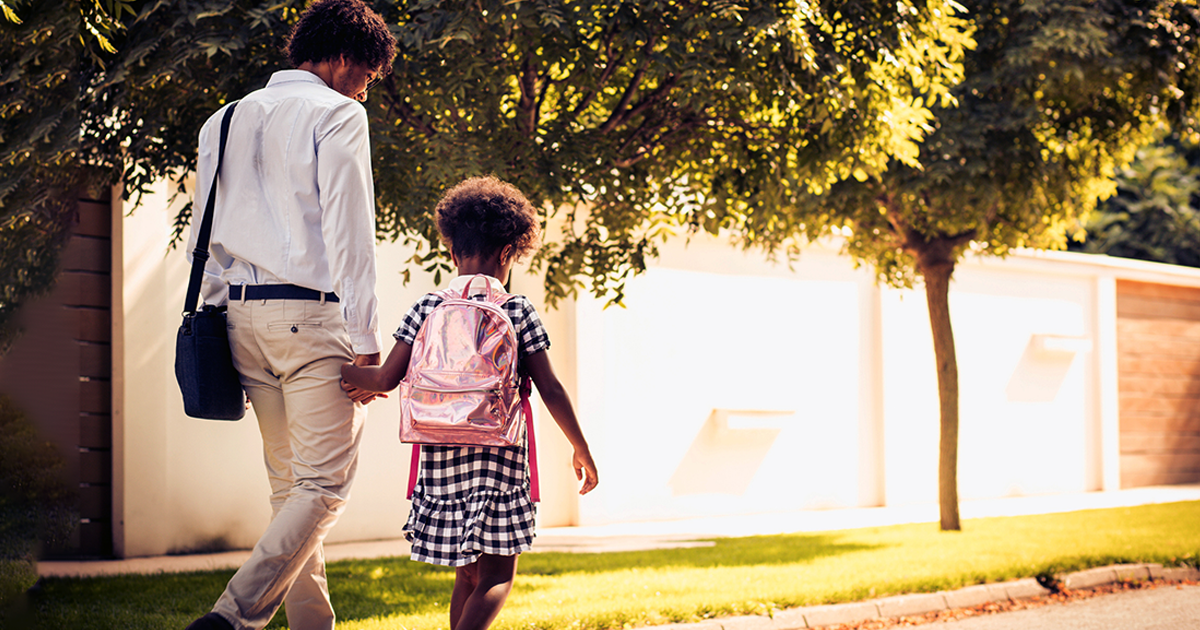It’s easy to forget that being a kid can be stressful. As a parent of a 6-year-old, I sometimes find myself thinking things like, “She has no bills and she gets to nap whenever she wants. What’s the problem?!”
But the truth is that being a kid isn’t all laughter and lollipops. They have to deal with big life changes along with the rest of us. Add high-pressure exams, bullies, and social media to the mix, and it’s no wonder childhood can be stressful.
Here’s the thing, though: Not all stress is bad. “Stress can be energizing and motivate us to tackle challenges,” says therapist Sarah Dolling. “It becomes an issue when kids are dealing with more stress than they can manage.”
And, unfortunately, 70% of kids age 9 to 18 say their ability to cope with challenges is “medium” to “very low,” according to a 2022 survey. That’s where we, as parents, come in.
“Parents play an important role in shaping how kids make sense of their feelings of stress, how they cope with those feelings, and how they problem solve and plan for future stressful events,” says therapist Hayley Quinn, PsyD. “When kids learn age-appropriate ways to manage stress, they build self-efficacy and confidence. They also learn healthy boundaries, self-care skills, and how to foster healthy relationships.”
Since helping our kids learn these skills can be easier said than done, we’re here to help. Below, how to identify when your kids are stressed. Plus, healthy ways to support them.

Achieve your mental wellness goals
AbleTo programs give you 24/7 access to tools, activities, and content tailored to your needs. Sign up or log in to start exploring.

Signs your kid might be stressed
Knowing when your child is stressed isn’t always easy. Kids can express their stress differently than adults — both verbally and in how it manifests. For instance, “little kids might say they’re scared or sick,” says Quinn. “Or, some kids might express it through behavior changes.” Think: tantrums, accidents, and nightmares. That’s all OK. And normal. It just makes our job as parents a little harder.
Below are some common signs of stress to be aware of. But they’re not the only ones and some can also be signs of different issues. When in doubt, consult your child’s primary care doctor. Or reach out to a mental health provider. And no matter what, keep talking with your child.
- Irritability, anger, frequent bad moods, or other negative changes in behavior
- Sleeping too much or too little
- Inability to relax
- Difficulty regulating emotions
- New or recurring fears
- Trouble concentrating
- Neglecting responsibilities, like homework or chores
- Withdrawing from activities they used to enjoy
- Needing more help from adults
- Rigid or controlling behavior
- Avoiding or excessive clinging to parents and/or guardians
- Avoiding long-term friendships in favor of new peer groups
- Changes in appetite
- Getting sick more often
7 ways to support stressed kids
Even though we can’t remove all of our kiddos’ stressors, we can make sure they feel supported in managing them. Here are a few ways you can show up for your kid.
1. Listen attentively
It can be tempting to dive in with solutions and judgment when our kids share their experiences. Instead, pause to really hear them. Be patient and ask open, curious questions like, “And then what happened?” or “And how did that feel?”
“Your child may not be familiar with the word or concept of stress,” says Dolling. “This approach can help you figure out what your child is really trying to say.”
2. Model resilience
When your child comes to you with a problem, you can share a personal experience from your own life. For instance, “I remember in 7th grade, there was this girl who picked on me every morning. It was so hard to get through, but here’s how I managed it.”
You only want to do this, however, if your child is open to it. Be careful not to take the focus away from what they’re going through.
3. Help them reframe their thoughts
Much like us, kids can get stuck in not-so-kind thought loops. When this happens, it can help to model reframing. The goal is to help shift their focus onto what they are doing well, despite the outcome. You also want to try to provide a different, healthier perspective about the situation, says Quinn.
For instance, if your child says something like, “I’m bad at sports,” you might be tempted to shower them with praise. Instead, remind them of times when they worked hard and made progress. Consider: “Sports might not come easily to you. But when you work hard at something you improve fast. Remember how well you ended up doing in math class last year?”
Not sure how to best reframe unhelpful thoughts? AbleTo’s 3Cs Guided Journal takes you step-by-step through the process.
4. Connect as a family
Spending time together having fun, creating something, being in nature, or making memories is a great way to offset stress. “Similar to adults, kids can sometimes fixate on a problem or see the problem as bigger than it is,” says Quinn. “Changing gears and focusing on family connection can help kids build resilience and learn healthy coping skills.”
Give your child some ideas of activities you can do together. Then, let them choose what appeals to them.
5. Encourage healthy sleep habits
Getting enough sleep is essential for kids’ physical and emotional wellness. The CDC recommends 9-12 hours for kids 6-12 years old and 8-10 hours for teens.
To help your child get quality rest, encourage a consistent bedtime and wake time. Dimming the lights in your home after dinner can also help. As can putting away all screens at least an hour before bed. Research shows the blue light emitted by some electronics can suppress the sleep hormone melatonin. And kids may be even more sensitive to its effects than adults.
6. Stick to routines
Taking some time to recharge batteries and engage in self-care activities can be helpful. But it’s best to maintain routines — such as school, regular meals, and family rules — as much as possible. “Children need structure and routine to thrive,” says Quinn. “Predictability and daily rhythms can help offset the impact of stress. They also help kids develop self-esteem and allow for healthy distraction.”
7. Prioritize your own self care
Trust me, I know there’s nothing more annoying than having someone preach “self care” when you’re an exhausted and overwhelmed parent. But, taking care of ourselves allows us to better support others. Here are 7 healthy and realistic ways to practice self care.
The kids will be all right
Watching our kids struggle is the pits. So remember to be patient with yourself as you figure out how to best help them. At the end of the day, just being there to offer a listening ear and a supportive hug will go a long way.
Sure, our kids will always face stressful times. But with our help, they’ll become better equipped to navigate all that life brings their way.
Need help putting these tips into practice?
You may be eligible for virtual therapy, coaching, or on-demand self care from AbleTo. Each program is designed by clinicians and grounded in science. Sign up today and get the support you deserve.
By Katie Nave
Katie Nave is a writer and mental health advocate living in Brooklyn, New York. Her work has been featured in publications including Newsweek, Glamour, Business Insider, and Motherly. She has served as a producer for the National Women’s March and worked with organizations like Girls Inc. and CancerCare.
Clinically reviewed by Hayley Quinn, PsyD.
Photo by Mladen Zivkovic/iStock. Individuals in photographs do not represent AbleTo participants.
The information featured on this site is general in nature. The site provides health information designed to complement your personal health management. It does not provide medical advice or health services and is not meant to replace professional advice or imply coverage of specific clinical services or products. The inclusion of links to other websites does not imply any endorsement of the material on such websites.


